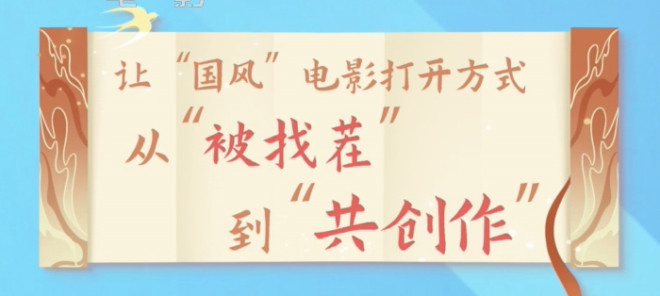Why are these "national style" movies always being "found fault"?
Special feature of 1905 film network In the summer of 2023, domestic animated films triggered a poetry reading craze among primary and secondary school students. China’s mythical epic films set a new record, which exceeded the audience’s imagination.At the same time, this "Chinese style" on the big screen has fallen into the embarrassing situation of being "found fault" one after another! ?
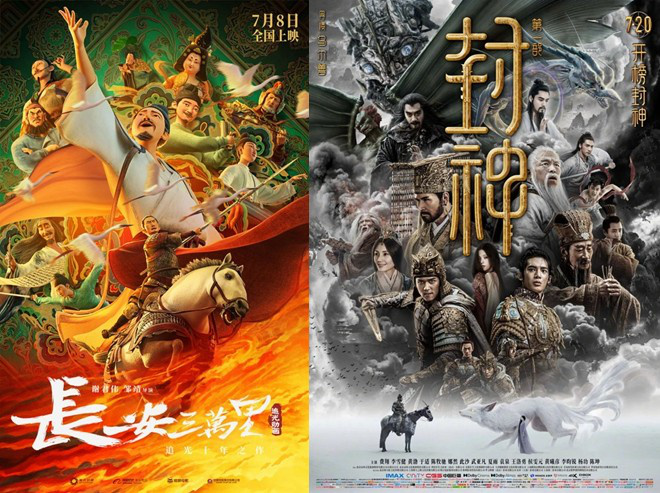
Netizens pointed out that Chang ‘an Three Wan Li distorted historical facts. For example, characters experience is not consistent with the truth, historical figures are washed away, and the time of poetry is disordered.
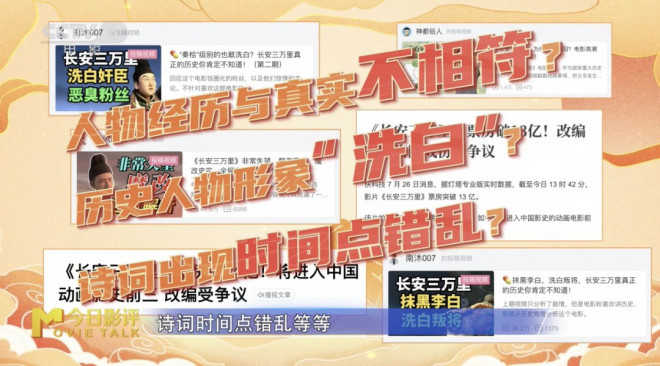
However, the first part of "Feng Shen" is caught in the arguments that the service of Buddhism is too gorgeous and the story character magic change is involved.
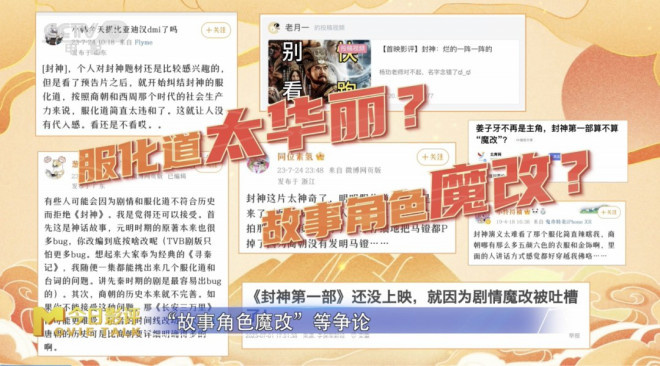
How did the opening way of Guofeng movies become "finding fault"? Should film and television works involving history strictly follow historical facts?
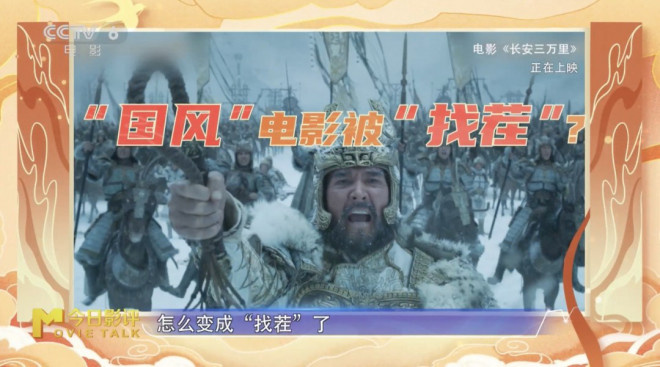
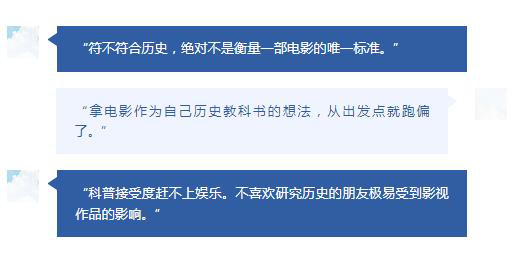
Indeed, there are indeed many film and television works in the market today that spread the wrong information under the signboard of mass entertainment. How should we face these two different voices?
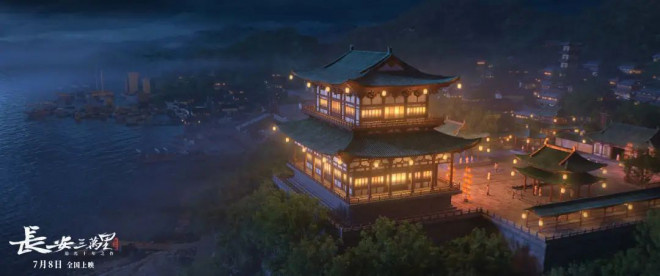
As for the animated film "Three Wan Li in Chang ‘an", since it is a historical film, the audience will subconsciously regard it as a historical reference book when watching it. The audience will easily think that many things that happened in movies are historical facts that really happened in history.
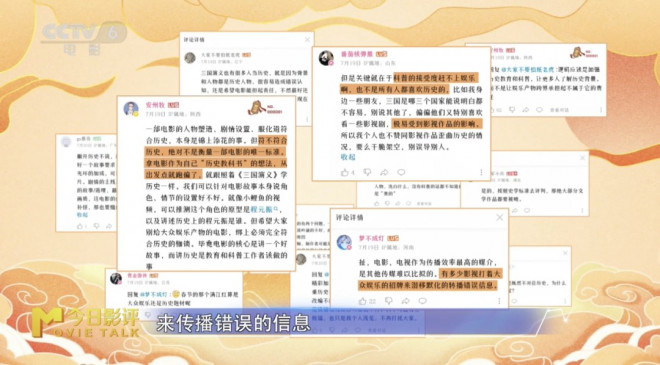
When the audience leaves the cinema to read the history books, when they find that the real record is different from what happened in the movie, they will think that they have been deceived and deceived by the movie.
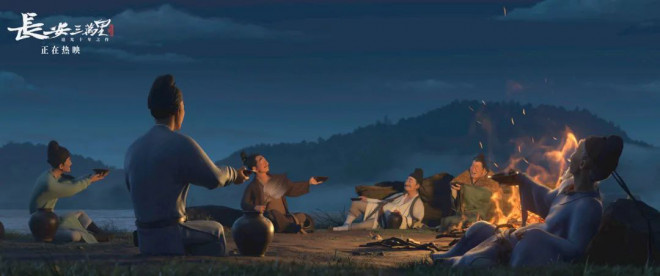
Among the comments of netizens, there is a comment that "the acceptance of popular science can’t keep up with entertainment". One of the most successful aspects of the film is that it uses visual and auditory communication methods that are popular and easily arouse the audience’s emotion and memory, and stimulates many people’s interest in history.
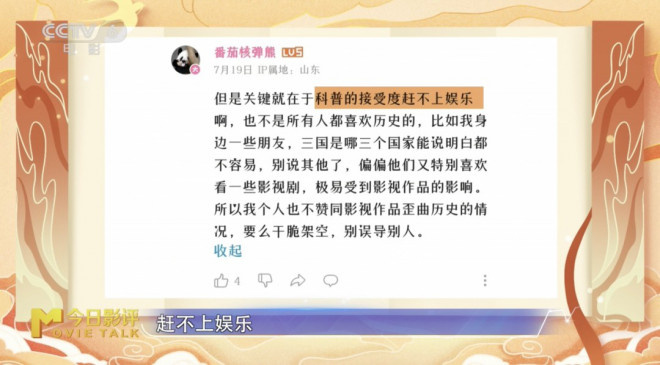
It is undeniable that the popularity of telling stories about historical themes in a serious way on the video platform is really not high. Therefore, we can also see that after the film "Three Wan Li in Chang ‘an" was released, many historical and cultural bloggers used the film and influence to spread the story to more people. For example, the stories of Li Bai, Du Fu, Gao Shi, Emperor Taizong and Cheng Yuanzhen.
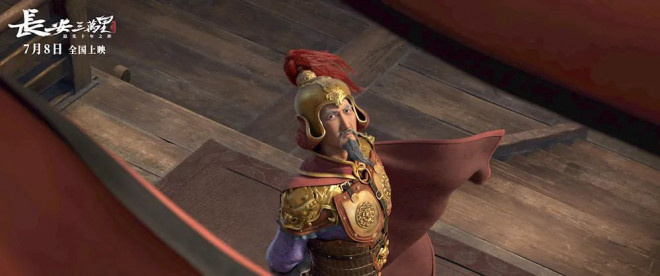
There are some reasonable adaptations in The Three Wan Li in Chang ‘an, which are generally accepted by the audience. Among them, for the image of Gao Shi, the film has made a relatively large adaptation.
In the history of Gao Shi, he once wrote poems to Li Linfu and Yang Guozhong. At that time, Yang Guozhong launched a war against Nanzhao. As a result of the war, Tang Jun was completely annihilated, but Gao Shi boasted that Yang Guozhong had won the war. In fact, this can be said to be a "stain" of Gao Shi. But this is not reflected in the movie. In the film, Gao Shi’s image is very practical and willing to work, and he is not willing to take those crooked ways.
For example, in history, Gao Shi did not rescue Li Bai after the Anshi Rebellion. In order to highlight the image of Gao Shi, at the end of the film, he suggested that the audience borrowed Guo Ziyi to save Li Bai.
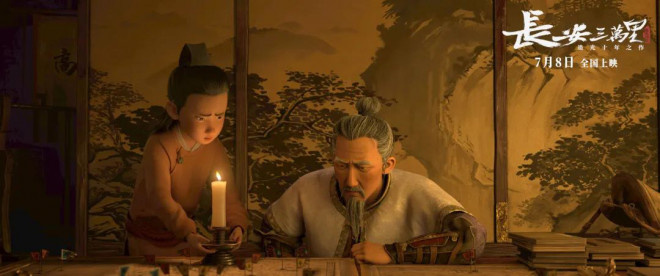
For the general audience, these two changes are mainly for the film plot service, and changing historical facts can also make the audience accept.
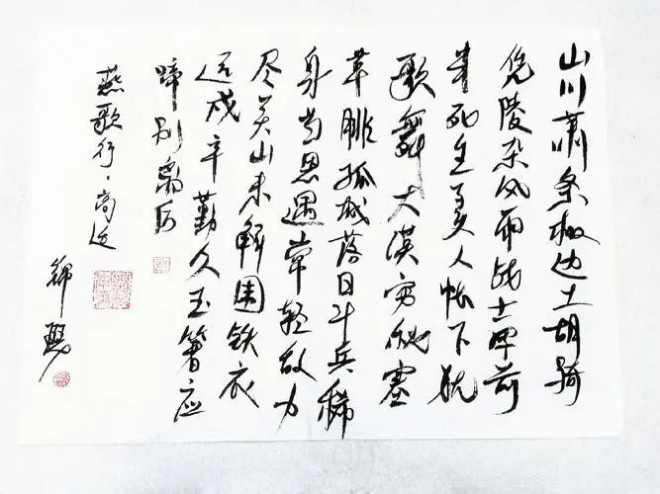
Besides, I also saw many netizens say that "the poems in Three Wan Li in Chang ‘an appear in the wrong order". Gao Shi’s "Yan Ge Xing" has such a historical background. At that time, a man from the frontier fortress saw Gao Shi and told him a lot about the frontier fortress. Gao Shi felt it in his heart, so he wrote "Yan Ge Xing".
In the movie, "Yan Ge Xing" was written by Gao Shi on the poem board pavilion in the post station when he came home from northern Hebei. This adaptation of the film can be described as ingenious. Because Gao Shi had just experienced a few years of military camp life at that time, there was a backlog of emotions in his heart. At the same time, there is also a backlog of emotions in the hearts of the audience. I believe the audience’s viewing experience has reached a climax when the film shows the high-quality "the northeastern border of China was dark with smoke and dust" with animation.
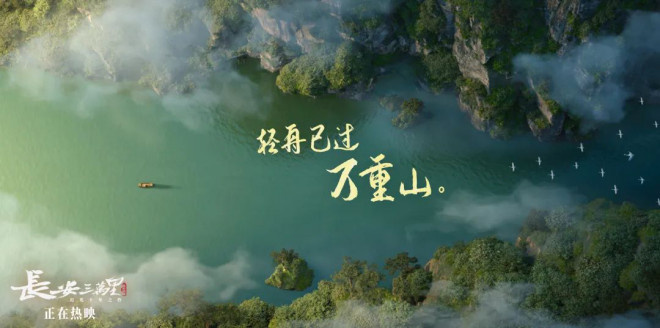
With the popularity of Guofeng movies, many netizens are holding "magnifying glasses" to "find fault" with Guofeng movies. Indeed, many movies contain historical distortions and magic change, which is hard for the audience to accept.
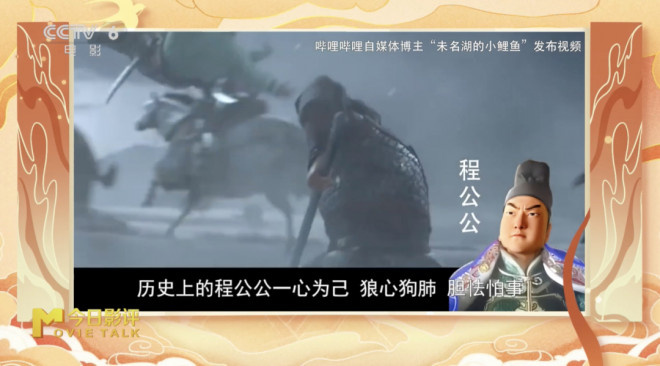
For example, for the character Cheng Gonggong, friends who are familiar with history can easily infer that Cheng Gonggong’s historical prototype is Cheng Yuanzhen. During the reign of Emperor Taizong of Tang Dynasty, Cheng Yuanzhen was a great eunuch who was in power in the ruling and opposition, and was the chief culprit indirectly leading to the Tubo occupation of Chang ‘an. So at this point, the changes in the film are not very satisfactory to most audiences who are familiar with history.
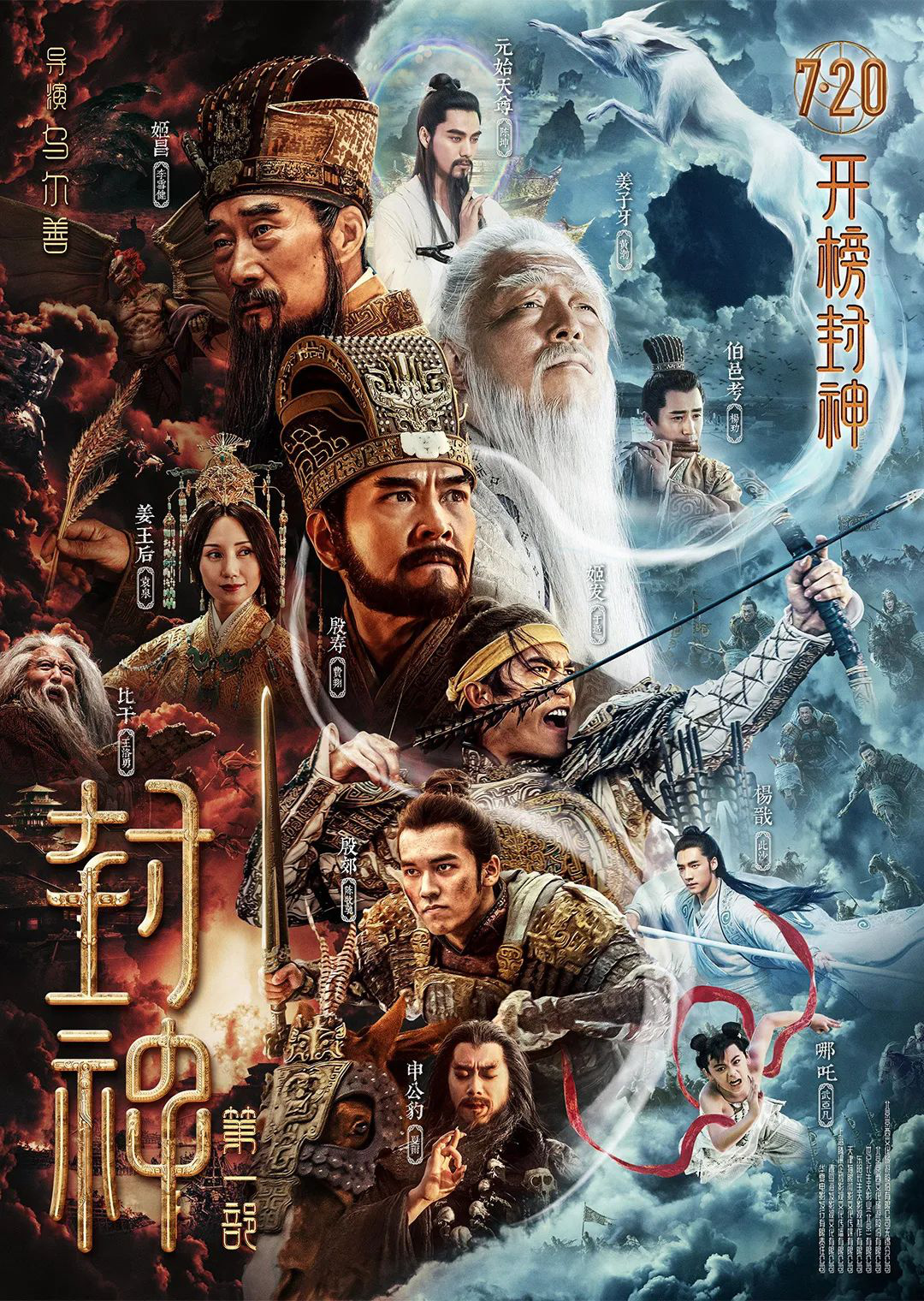
Another film, Feng Shen Part I, which was adapted from the novel Feng Shen Romance in Ming Dynasty and the Song and Yuan Dynasties dialect, is a drastic adaptation of the original work.
Different from Three Wan Li in Chang ‘an, the film Feng Shen Part I is an epic mythological film in its positioning, which is different from the historical story of Three Wan Li in Chang ‘an, and we should look at it with another standard.
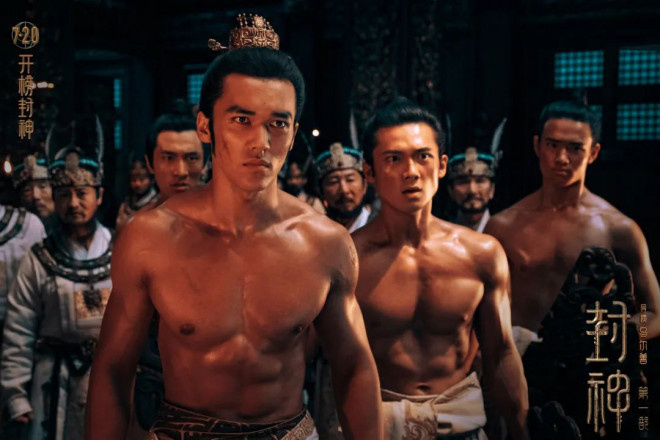
The original works related to the deity IP have a long history, and there are many Machamp gods in the movies, so we can’t be too demanding about how close their movies are to historical facts in historical records. After all, no one has seen immortals or ghosts. Therefore, there is a lot of room for the service of Buddhism in the first part of Feng Shen. Compared with historicity, in fact, what we should pay more attention to is its characterization and its plot.
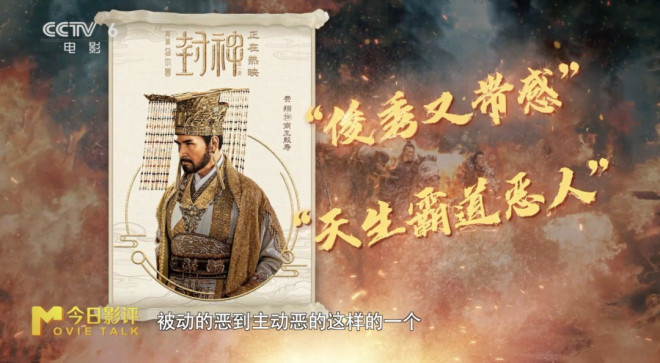
The images of Zhou Wang and da ji, including Ji Fa, in Feng Shen I are quite different from those in the past. In the adaptation of the image of Zhou Wang Yin Shou, the director hopes that the characters should have their own original motivation, and the ruin of the country is fundamentally caused by the ruler’s own defects, his own fatuity and his own greed, so the film "The First Part of the Gods" series readjusted the setting of Yin Shou. Zhou Wang changed from "passive evil" to "active evil", and many viewers commented that "this kind of Yin Shou is both handsome and emotional".
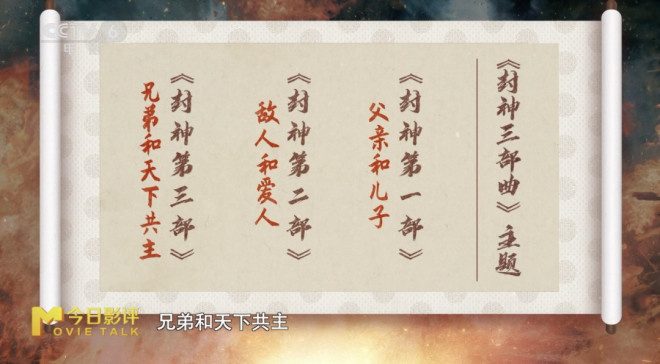
On the other hand, the current film audience’s strict requirements on the historical truth and historical objectivity in the works of national style show the audience’s concern and love for the theme on a large scale. For example, as the first work of the series of deities directed by Wu Ershan, the audience knows that there are also the second and third parts.
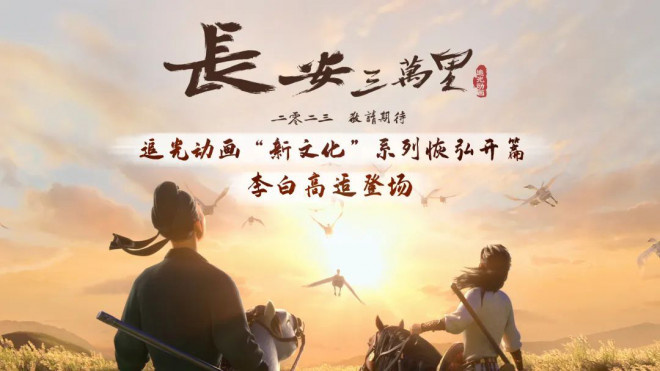
Including the animated film "Three Wan Li in Chang ‘an" produced by light-chasing animation, which is the first in the "New Culture" series, and other animated films in this series will be launched to meet the audience in the future.
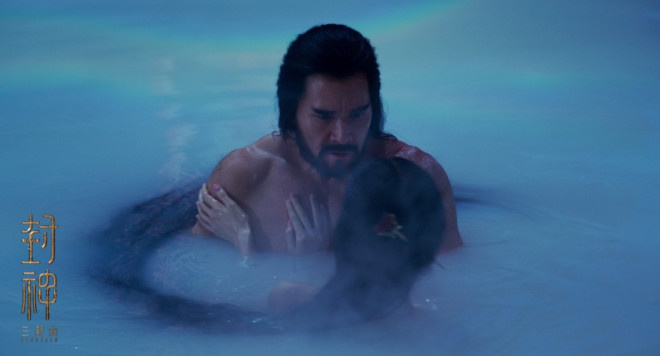
From this point of view, the first step of series creation has been taken, and the audience’s attention and evaluation perspective have also gathered here. The audience also hopes that more excellent and progressive film works can flood into the market.

Film and television creation is not a textbook, so we should look at the films with a tolerant attitude. After all, film is the product of artistic creation, which is different from real history, and it is also different from documentary. There are many ways to know history, and the more important or effective way is to read books or go to museums to listen to tour guides.
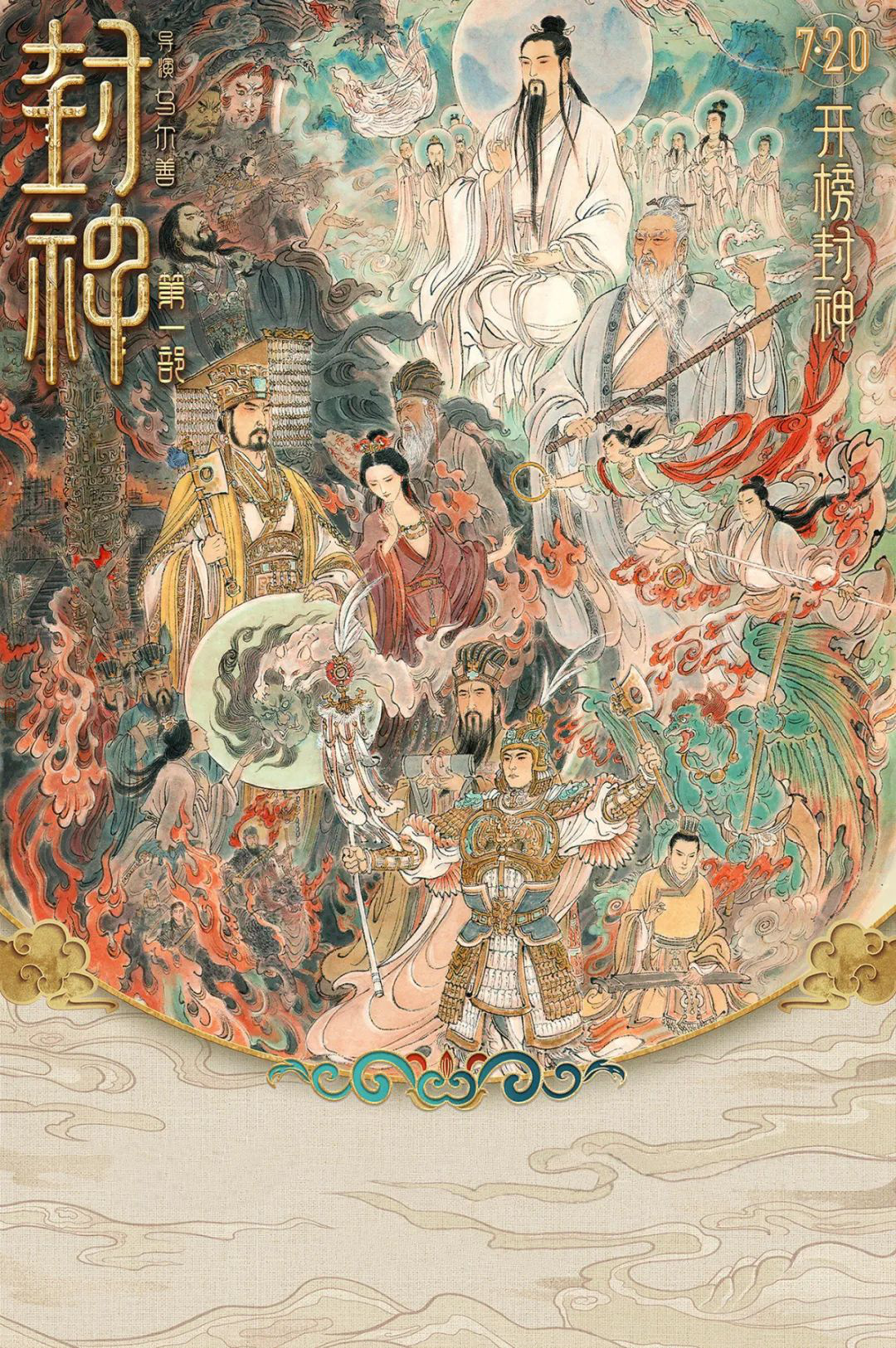
On the other hand, with the improvement of the audience’s aesthetic experience, the pressure on film and television art creators is increasing. In the historical creation of the theme of national customs, the creators need to grasp a scale of adaptation and follow the principle of "the big points are not empty, and the small points are not limited".


I also hope that there will be more movies like Three Wan Li in Chang ‘an and The First Part of Gods, which will enrich the audience’s viewing experience.
